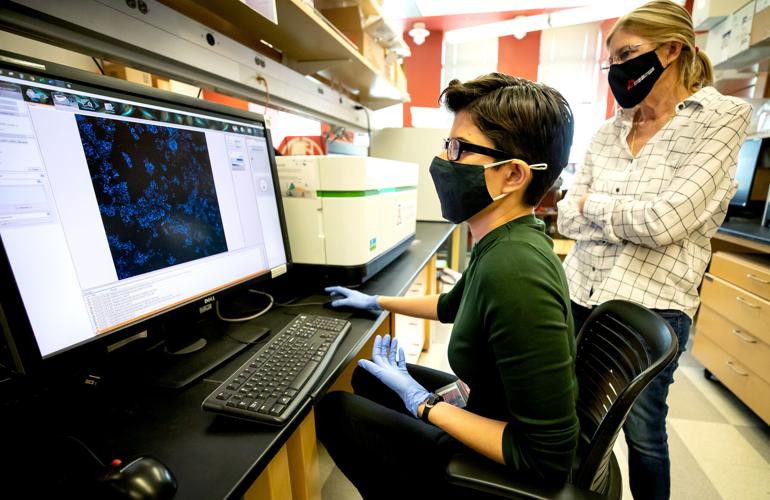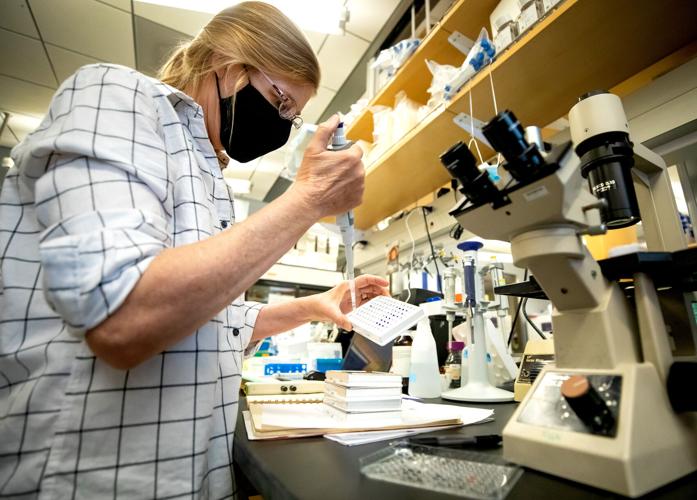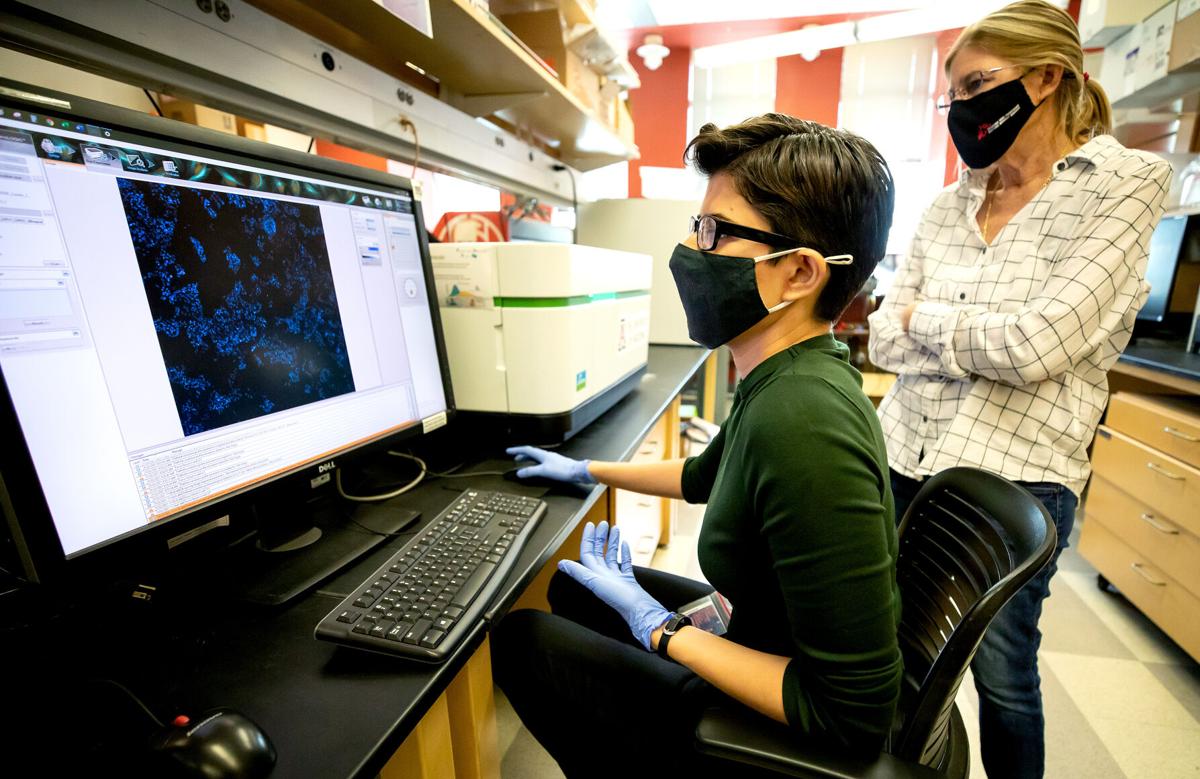Tucson-based startup Reglagene Inc. has won a major investment from a California angel investor group to advance toward clinical studies of new treatments for brain cancers and neurological disorders based on technology developed at the University of Arizona.
The undisclosed investment from members of nationally known Tech Coast Angels Orange County will support studies required for Reglagene to file an Investigational New Drug application with the U.S. Food and Drug Administration, the company said.
Reglagene was founded in 2016 to commercialize technology developed by co-founders Laurence Hurley, University of Arizona professor emeritus of medicinal chemistry, and UA associate research professor Vijay Gokhale. Hurley is Reglagene’s chief science officer; Gokhale is vice president of drug discovery.
The company’s core drug technology, which is licensed from the UA, uses “DNA quadraplex master switch” technology to identify small molecules that can act to switch certain genes on and off, with the aim of killing cancer cells.
The original technology was acquired by San Diego-based Cylene Pharmaceuticals and taken through mid-phase clinical trials before the company dropped it.
Reglagene is designing small-molecule treatments that will pass through the blood-brain barrier, which protects the brain from infection, to treat brain cancer tumors, tumors from other cancers that spread to the brain, as well as neurological disorders such as Parkinson’s disease.
The company declined to say the amount of the investment or comment beyond the news release, citing a regulatory “quiet period” required before an investment round is closed.
In mid-May, Reglagene filed a notice of an exempt security offering with the U.S. Securities and Exchange Commission detailing an offering of $3 million in stock for equity and warrants or other stock options.
The filing under Regulation D, which covers private placements of stock, said the company has sold $1.65 million worth of stock with 22 investors and a minimum investment of $25,000.
“TCA Orange County invested in our future,” Reglagene CEO Richard Austin said in prepared remarks. “This internationally respected group did very thorough diligence on our company before deciding it was a wise investment. In addition to the appreciation for the medical advances and life-changing benefits from our work, it’s also nice to be recognized as a solid investment for financial return.”
The investment will support the studies required by the FDA for Reglagene to file an Investigational New Drug application, a step that confirms the safety and pharmacological activity exhibited by a drug for commercial development and paves the way to the initiation of human clinical trials, the company said.

Sydney Wilson, cell biologist and Reglagene employee, dyes DNA inside the University of Arizona’s Functional Genomics Core at the Thomas W. Keating Bioresearch Building on Sept. 22, 2021.
“We believe that Reglagene’s unique and novel approach will positively impact quality of life for many people, and we are excited to be a part of their journey,” said Lisa Walker, president of Tech Coast Angels Orange County. “We are confident in Reglagene’s ability to deliver on their promise to bring groundbreaking advancements in the treatment of brain diseases.”
Angel investors are individuals who qualify to invest in private-equity deals because of their high income or net worth. They generally vet companies as a group and invest individually, though some form communal side funds.
Founded in 1997, Tech Coast Angels has invested more than $270 million in more than 520 companies and has helped attract more than $2.2 billion in additional capital.
One of the largest and most active angel investor groups in the nation, TCA has steadily remained one of the top three angel groups nationally in number of funded deals, amounts invested and number of members for over two decades.
Members of Tucson’s own, very active angel investor group, the Desert Angels, have invested in Reglagene and several other UA life-science tech spinoffs, including NuvOx Pharma, Regulonix and Avery Therapeutics.
And Reglagene isn’t the only local biotech startup to attract out-of-state angel funding recently.
In June, Tucson-based drug developer NuvOx announced it had won funding of nearly $200,000 from an Indiana-based angel investor group to further clinical trials of its oxygen-based therapeutics for diseases including brain cancer and stroke.
Tech-talent scoreboard
Tucson can’t match major technology hubs like San Francisco or Seattle, or even Phoenix for the availability of top-tier, local tech talent.
But the Old Pueblo is an up-and-comer in that category, according to real-estate giant CBRE’s latest Scoring Tech talent report released in July.
Tucson ranked No. 13 on CBRE’s list of up-and-coming North American tech-talent markets in the annual report, which ranks 75 U.S. and Canadian markets according to their ability to attract and grow tech talent.
Tucson’s local tech employment has grown by 3% in the past five years, and its tech wages have increased by 13%, CBRE says.
The report identifies emerging tech hubs in most regions of North America, from Huntsville in the Southeast to Providence in the Northeast to Albuquerque in the West. Canada landed three cities on the list.
David Montijo, a CBRE first vice president in Tucson, said Tucson benefits from not only a top-notch institution in the University of Arizona but also thriving aerospace and advanced manufacturing sectors.
“The area’s relatively low cost of living and rising tech wages makes it all the more appealing to the tech employers and keep local students who graduate with technology degrees from the University of Arizona,” Montijo said.
These up-and-coming markets are separate from the 50 larger tech markets that CBRE’s report ranks in its Tech Talent Scorecard. In contrast, the ‘next 25’ markets are ranked by a narrower set of criteria than the top 50, including tech talent supply, wages, concentration, recent growth rates and their outlook.
Nationally, tech talent job growth of 7.3% in the study year ended May 2022 topped the pace of non-tech job growth (5%) in that span.
But CBRE noted that many technology companies have announced layoffs this year, with roughly 25% of those cuts affecting tech talent professions and the rest affecting non-tech roles at tech companies.
A University of Arizona video aimed at faculty, staff and students explains how Tech Launch Arizona commercializes new inventions.






